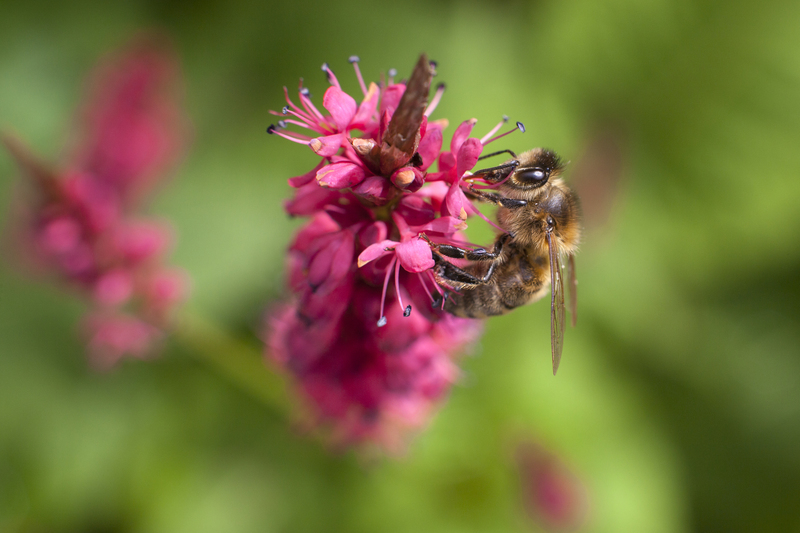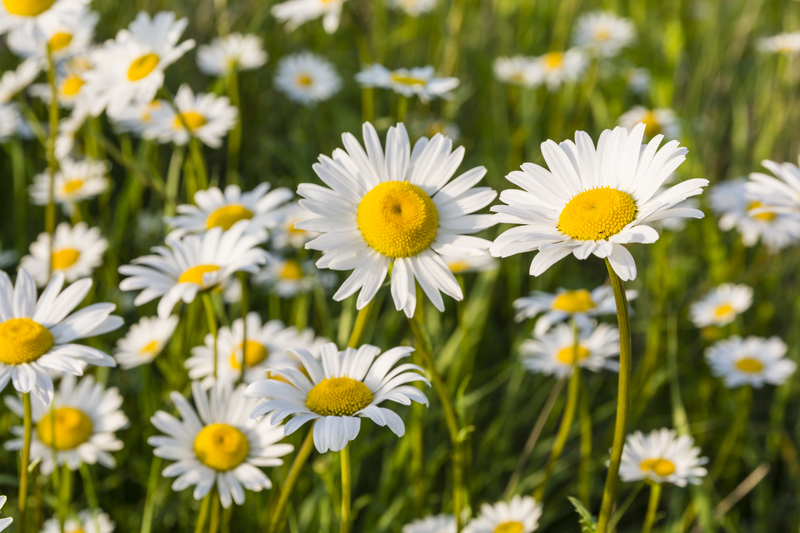Keeping wildlife out of your garden
Posted on 18/04/2024
can be a challenging task for any gardener. As much as we love seeing the beauty of wildlife in our surroundings, they can also cause damage to our plants and disrupt the balance in our garden ecosystem. However, with proper knowledge and strategies, it is possible to protect your garden from unwanted visitors without harming them. In this article, we will discuss effective methods to keep wildlife out of your garden.
The first step in keeping wildlife out of your garden is to understand the specific animals that may be causing damage. Different animals have different behaviors and preferences, so it's essential to identify the culprit before taking any action. Common garden invaders include deer, rabbits, squirrels, birds, and rodents. They can cause damage in various ways such as eating plants and fruits, digging up bulbs and seeds, and trampling on delicate plants.
Fencing is one of the most effective ways to keep unwanted animals out of your garden. Make sure to choose a fence that is high enough to prevent deer from jumping over and buried deep enough to stop burrowing animals like rabbits. You can also install electric fencing for added protection. Keep in mind that some determined animals may still find a way through or under fences, so regular monitoring and maintenance are necessary.
There are several natural deterrents that you can use to discourage wildlife from entering your garden. For example, certain plants have strong scents that repel animals, such as garlic, onions, marigolds, and lavender. You can plant these around the perimeter of your garden or interplant them with your susceptible plants. Some animals are also deterred by noise or motion. You can use wind chimes or pinwheels strategically placed around your garden to create noise or install motion-activated sprinklers that will startle animals when they get close.
For smaller animals, physical barriers can be an effective method of protection. You can use chicken wire or mesh cages to cover your plants and prevent animals from accessing them. This method is particularly useful for protecting individual plants or a small area in your garden. You can also use row covers to protect your plants from insects as well as small animals.
If you live in a rural area with larger wildlife like deer or coyotes, considering getting a livestock guardian such as a dog, llama, or donkey. These animals are bred to protect livestock from predators and can also ward off wild animals from your garden. However, this method requires proper training and care for the guardian animal.
The main advantage of keeping wildlife out of your garden is protecting your plants and maintaining a balanced ecosystem. It also reduces the risk of diseases that may be carried by these animals. However, using deterrents and barriers may not always be successful, and it can be labor-intensive to maintain them. Some methods may also be harmful or dangerous to the wildlife themselves if not used properly.
- Consistency is key when using deterrents and barriers. Make sure to regularly check and maintain them.
- Consider planting native species that are less attractive to wildlife.
- Install motion-activated lights in addition to sprinklers for nocturnal visitors.
- Use multiple methods simultaneously for better protection.
- Stay knowledgeable about local regulations regarding wildlife before taking any drastic measures.
Protecting your garden from wildlife may seem like a daunting task, but with the right strategies, it is possible to coexist peacefully with nature. Understanding the problem, using physical barriers and natural deterrents, and considering livestock guardians are all effective ways to keep wildlife out of your garden. However, it's essential to strike a balance between protecting your plants and showing compassion towards the animals.
Keeping wildlife out of your garden requires patience, consistency, and a bit of trial and error. By understanding the behavior of different animals and using a combination of methods, you can protect your garden while still appreciating the beauty of nature. Remember to always prioritize the safety and well-being of both your plants and the animals around you.
Understanding the problem
The first step in keeping wildlife out of your garden is to understand the specific animals that may be causing damage. Different animals have different behaviors and preferences, so it's essential to identify the culprit before taking any action. Common garden invaders include deer, rabbits, squirrels, birds, and rodents. They can cause damage in various ways such as eating plants and fruits, digging up bulbs and seeds, and trampling on delicate plants.

Fencing
Fencing is one of the most effective ways to keep unwanted animals out of your garden. Make sure to choose a fence that is high enough to prevent deer from jumping over and buried deep enough to stop burrowing animals like rabbits. You can also install electric fencing for added protection. Keep in mind that some determined animals may still find a way through or under fences, so regular monitoring and maintenance are necessary.
Natural deterrents
There are several natural deterrents that you can use to discourage wildlife from entering your garden. For example, certain plants have strong scents that repel animals, such as garlic, onions, marigolds, and lavender. You can plant these around the perimeter of your garden or interplant them with your susceptible plants. Some animals are also deterred by noise or motion. You can use wind chimes or pinwheels strategically placed around your garden to create noise or install motion-activated sprinklers that will startle animals when they get close.
Physical barriers
For smaller animals, physical barriers can be an effective method of protection. You can use chicken wire or mesh cages to cover your plants and prevent animals from accessing them. This method is particularly useful for protecting individual plants or a small area in your garden. You can also use row covers to protect your plants from insects as well as small animals.
Livestock guardians
If you live in a rural area with larger wildlife like deer or coyotes, considering getting a livestock guardian such as a dog, llama, or donkey. These animals are bred to protect livestock from predators and can also ward off wild animals from your garden. However, this method requires proper training and care for the guardian animal.
The pros and cons
The main advantage of keeping wildlife out of your garden is protecting your plants and maintaining a balanced ecosystem. It also reduces the risk of diseases that may be carried by these animals. However, using deterrents and barriers may not always be successful, and it can be labor-intensive to maintain them. Some methods may also be harmful or dangerous to the wildlife themselves if not used properly.
Tips for success
- Consistency is key when using deterrents and barriers. Make sure to regularly check and maintain them.
- Consider planting native species that are less attractive to wildlife.
- Install motion-activated lights in addition to sprinklers for nocturnal visitors.
- Use multiple methods simultaneously for better protection.
- Stay knowledgeable about local regulations regarding wildlife before taking any drastic measures.

Takeaways
Protecting your garden from wildlife may seem like a daunting task, but with the right strategies, it is possible to coexist peacefully with nature. Understanding the problem, using physical barriers and natural deterrents, and considering livestock guardians are all effective ways to keep wildlife out of your garden. However, it's essential to strike a balance between protecting your plants and showing compassion towards the animals.
Conclusion
Keeping wildlife out of your garden requires patience, consistency, and a bit of trial and error. By understanding the behavior of different animals and using a combination of methods, you can protect your garden while still appreciating the beauty of nature. Remember to always prioritize the safety and well-being of both your plants and the animals around you.
Latest Posts
Top Tips for Cleaning Your Patio and Paving Like a Pro
Easy Steps to Sharpen Your Garden Shears Without Leaving Home
Inspiring Concepts to Cultivate Your Own Zen Garden Sanctuary




